Did you know that the Central African CFA franc, used in Equatorial Guinea, is shared by six countries? This unique currency system makes it essential to understand how money works before your trip. Without proper planning, you might face challenges with payments or unexpected expenses.
Equatorial Guinea operates primarily as a cash economy. Credit cards are rarely accepted, and ATMs can be unreliable. This means you’ll need to carry enough local currency to cover your expenses. Knowing where and how to exchange money can save you time and stress.
This guide will help you navigate the financial landscape of this fascinating destination. From understanding exchange rates to managing cash needs, you’ll be well-prepared for a smooth and enjoyable journey.
Introduction and Overview of Equatorial Guinea
Nestled along the west coast of Central Africa, this country offers a unique blend of culture and history. With a population of 1.2 million, it’s a hidden gem waiting to be explored. Its rich cultural tapestry is deeply influenced by its Spanish colonial past, making it a fascinating destination for travelers.
The capital, Malabo, is a vibrant hub of Spanish colonial heritage and modern development. Located on Bioko Island, this city is a testament to the country’s ability to blend tradition with progress. From its historic architecture to its bustling markets, Malabo offers a glimpse into the heart of the nation.
Malabo plays a crucial role in the country’s economy and tourism appeal. As the administrative and financial center, it attracts both business travelers and tourists. The city’s unique charm lies in its ability to preserve its colonial roots while embracing modern advancements.
“Malabo is more than just a capital; it’s a gateway to understanding the soul of this remarkable country.”
This guide will help you navigate the essentials of traveling here. From understanding the local currency to exploring the cultural landmarks, you’ll find everything you need for a smooth and enjoyable journey.
| Key Facts | Details |
|---|---|
| Population | 1.2 million |
| Capital | Malabo |
| Official Language | Spanish |
| Currency | Central African CFA franc |
Essential Travel Information and Visa Basics
Traveling to a new destination requires careful planning, especially when it comes to visas and passports. Ensuring your documents are in order is the first step to a smooth journey. This section covers everything you need to know about entry requirements, visa processes, and passport validity.
Visa Guidelines: The country has introduced an eVisa system, making it easier for travelers to apply online. This streamlined process reduces waiting times and simplifies the application. Depending on your nationality and the length of your stay, visa costs range from $50 to $150.
Passport Requirements: Your passport must be valid for at least six months beyond your planned departure date. It’s also a good idea to have at least two blank pages for entry and exit stamps. Double-check these details before your trip to avoid any last-minute issues.
Special Conditions: Some travelers, such as business visitors or those planning extended stays, may need additional documentation. Always verify the specific requirements based on your travel purpose and nationality.
“Understanding entry and exit requirements is key to avoiding complications during your trip.”
Planning ahead for your visa and passport details can make your journey smoother. Whether you’re applying for an eVisa or ensuring your passport is up-to-date, taking these steps early will save you time and stress. With the right preparation, you’ll be ready to explore this fascinating destination with confidence.
Understanding the Central African CFA Franc
The Central African CFA franc is a key currency for six nations, offering unique stability and convenience. Pegged to the Euro, it ensures predictable exchange rates, making it easier for travelers to budget. This currency is widely accepted across the region, but understanding its nuances is essential for a smooth trip.
Denominations, Exchange Rates, and Stability
The Central African CFA franc comes in both coins and banknotes. Common denominations include 500, 1,000, 2,000, 5,000, and 10,000 franc notes. Coins range from 1 to 500 francs. Its fixed exchange rate with the Euro (1 Euro = 655.957 CFA francs) provides stability, reducing the risk of sudden value fluctuations.
This stability is particularly beneficial for international transactions. It allows you to plan your expenses without worrying about unpredictable currency changes. Whether you’re paying for accommodations or dining out, the Central African CFA franc ensures consistency.
Where to Exchange Your Money
Exchanging your money is straightforward if you know where to go. Banks and authorized exchange bureaus are the most reliable options. They offer competitive rates and ensure you receive genuine currency. Avoid exchanging money on the street, as this can lead to scams or counterfeit bills.
ATMs are another option, but they are not always reliable in remote areas. If you plan to use a credit card, check with your bank about international fees. Carrying some cash is still advisable, especially for smaller purchases or tipping.
“Exchanging your money at trusted locations ensures you get the best value and avoid unnecessary risks.”
| Denomination | Type |
|---|---|
| 500 francs | Banknote |
| 1,000 francs | Banknote |
| 2,000 francs | Banknote |
| 5,000 francs | Banknote |
| 10,000 francs | Banknote |
| 1-500 francs | Coins |
Understanding the Central African CFA franc and its practical use can make your trip more enjoyable. With this knowledge, you’ll be well-prepared to handle your finances confidently and efficiently.
Payment Options in Equatorial Guinea
When traveling to a cash-driven economy, understanding payment options is crucial. This country operates primarily on cash, with limited acceptance of credit cards. While major hotels and airlines may accept cards, most local businesses prefer cash transactions. Being prepared with the right payment methods ensures a smoother and more enjoyable experience.
Credit Card and ATM Usage
Using a credit card can be challenging outside major establishments. ATMs are available in cities like Malabo and Bata, but they are not always reliable. When withdrawing cash, choose ATMs located in secure areas, such as banks or shopping centers. Always notify your bank of your travel plans to avoid card blocks.
Carrying enough local currency is essential, especially in rural areas. Exchange your money at trusted banks or authorized bureaus to avoid counterfeit bills. While cards offer convenience, cash remains the most widely accepted payment method.
Alternatives to Traditional Banking
For tech-savvy travelers, digital payment options are gaining popularity. Services like Apple Pay and Google Pay are occasionally accepted in urban areas. However, their availability is limited, so having cash as a backup is advisable.
Prepaid travel cards are another option. They often incur lower fees compared to traditional credit or debit cards. These cards allow you to load multiple currencies, making them a flexible choice for international travel.
“Using a mix of cash and digital payments ensures you’re prepared for any situation during your trip.”
Here’s a quick overview of payment options:
| Payment Method | Availability | Tips |
|---|---|---|
| Cash | Widely accepted | Exchange at banks or authorized bureaus |
| Credit Cards | Limited to major establishments | Notify your bank before traveling |
| ATMs | Available in cities | Use secure locations |
| Digital Wallets | Occasionally accepted | Carry cash as a backup |
| Prepaid Cards | Flexible for multiple currencies | Check fees and exchange rates |
By combining cash with alternative payment methods, you can navigate the financial landscape with ease. Whether you’re exploring bustling cities or remote villages, being prepared ensures a stress-free journey.
Managing Your Budget on Your Trip
Planning your daily expenses is key to enjoying a stress-free trip. Knowing what to expect for meals, transport, and activities helps you stay on track. Here’s a breakdown of typical costs and practical tips to manage your budget effectively.
Daily expenses can vary depending on your travel style. A budget traveler might spend around $30-$50 per day, while mid-range travelers could expect $70-$100. Luxury travelers may spend $150 or more. These costs include meals, local transport, and entry fees for attractions.
Food is a significant part of your daily budget. Local meals at small eateries cost around $5-$10, while dining at mid-range restaurants may range from $15-$30 per person. Street food is a great option for saving money without compromising on taste.
Transportation costs depend on your mode of travel. Local buses and shared taxis are affordable, usually costing $1-$3 per ride. Private taxis or car rentals will increase your expenses. Plan your routes in advance to avoid unnecessary costs.
“Smart budgeting allows you to enjoy your trip without financial stress.”
Here’s a quick overview of typical daily expenses:
| Expense | Budget Traveler | Mid-Range Traveler | Luxury Traveler |
|---|---|---|---|
| Meals | $10-$15 | $20-$40 | $50+ |
| Transport | $5-$10 | $15-$30 | $50+ |
| Activities | $5-$10 | $15-$30 | $50+ |
To keep costs manageable, consider these strategies:
- Opt for local eateries and street food to save on meals.
- Use public transport or walk for short distances.
- Research free or low-cost activities to enjoy your day without overspending.
Tailor your budget to your travel style. Budget travelers can focus on affordable accommodations and local experiences. Mid-range travelers might splurge on a few guided tours or nicer meals. Luxury travelers can enjoy premium services and exclusive activities.
Finally, account for seasonal price variations. High tourist seasons often mean higher costs for accommodations and activities. Planning ahead and booking early can help you secure better rates.
Local Banking Services and Financial Institutions
Understanding local banking services is essential for a smooth travel experience. The region is home to several key financial institutions that regulate currency and facilitate transactions. These banks play a vital role in ensuring the stability of the Central African CFA franc, which is widely used across six countries.
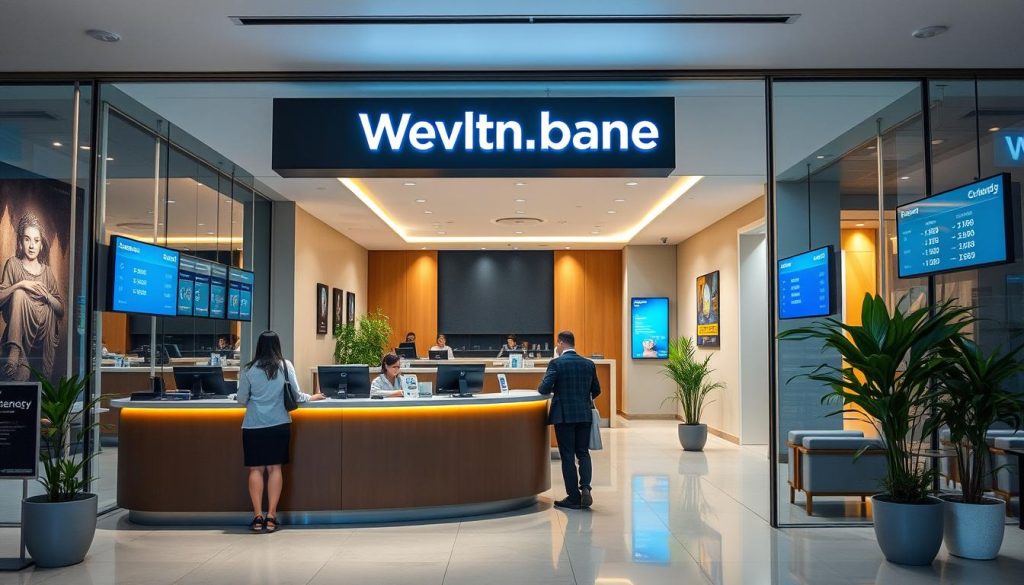
For travellers, accessing reliable banking services is crucial. Major banks like BGFIBank and Société Générale operate in urban areas, offering services such as currency exchange and ATM withdrawals. However, in rural regions, banking options may be limited, so planning ahead is advisable.
Here’s what you need to know about local banking services:
- Major banks are concentrated in cities like Malabo and Bata.
- ATMs are available but may not always be reliable in remote areas.
- Currency exchange is best done at authorized banks or bureaus.
“Using trusted financial institutions ensures your money is safe and accessible during your trip.”
Regional differences in service availability can impact your experience. Urban areas offer more options, while rural locations may require you to carry cash. Always notify your bank of your travel plans to avoid issues with card usage abroad.
To manage your finances securely, follow these tips:
- Carry a mix of cash and cards for flexibility.
- Use ATMs located in secure, well-lit areas.
- Keep a record of your transactions for reference.
By understanding the local banking landscape, you can navigate financial matters with confidence. Whether you’re in a bustling city or a remote village, being prepared ensures a stress-free journey.
Avoiding Fraud and Securing Your Transactions
Protecting your finances should be a top priority when exploring new destinations. While traveling, you may encounter situations that expose you to potential risk. Being aware of common scams and practicing safe habits can help you avoid unnecessary trouble.
Common types of fraud include counterfeit currency, overcharging, and fake tour operators. Always verify the authenticity of money and double-check prices before paying. Be cautious of strangers offering unsolicited help or deals that seem too good to be true.
Safe ATM Practices
Using ATMs safely is essential to protect your personal information. Choose machines located in secure areas, such as banks or shopping centers. Shield your PIN when entering it and avoid using ATMs at night or in poorly lit areas.
Notify your bank of your travel plans to prevent card blocks. Monitor your account regularly for unauthorized transactions. If you notice anything suspicious, report it immediately.
Precautions in Crowded Areas
Crowded places, such as markets or public transport, are hotspots for pickpockets and scam artists targeting tourists. Keep your belongings secure and avoid displaying valuables. Use a money belt or hidden pouch for cash and important documents.
“Staying vigilant and prepared can significantly reduce your exposure to fraud and theft.”
Here’s a quick guide to staying safe:
| Situation | Precaution |
|---|---|
| Using ATMs | Choose secure locations, shield your PIN |
| Nighttime transactions | Avoid ATMs, carry minimal cash |
| Crowded areas | Secure belongings, avoid valuables |
By following these tips, you can minimize risk and enjoy a worry-free trip. Stay alert, trust your instincts, and always prioritize your safety.
Visa and Travel Authorization Requirements
Navigating visa requirements is a crucial step for any international trip. Proper travel authorizations ensure you can explore beyond the capital without issues. This section breaks down the eVisa process, required documents, and tips for a smooth entry.
The eVisa Process and Travel Permits
The eVisa system simplifies the application process for international travelers. It allows you to apply online, reducing waiting times and paperwork. This streamlined approach is especially beneficial for persons planning to visit equatorial guinea for tourism or business.
To apply, you’ll need the following documents:
- A valid passport with at least six months of validity.
- Proof of travel insurance covering €30,000.
- A completed application form and payment of the visa fee.
Processing times typically range from 15 to 30 days. It’s recommended to apply at least a month before your trip to avoid delays. Double-check all details to ensure your application is error-free.
“Applying for your eVisa early ensures you’re ready to explore without last-minute stress.”
Common Concerns and Entry Procedures
Many travelers worry about border checks and entry requirements. At the border, you’ll need to present your passport, eVisa, and proof of accommodation. Border officials may also ask for your return ticket and travel itinerary.
Here are some tips to prepare for a hassle-free entry:
- Keep all documents organized in a travel folder.
- Make copies of your passport and visa for backup.
- Notify your bank of your travel plans to avoid card issues.
By following these steps, you can ensure a smooth start to your journey. Whether you’re a first-time visitor or a seasoned traveler, proper preparation makes all the difference.
Understanding Costs and Daily Expenses
Understanding daily expenses is essential for a well-planned trip. Knowing what to expect for accommodation, food, and transport helps you stay within your budget. This section breaks down typical costs and offers tips to manage your spending effectively.
Daily expenses can vary depending on your travel style. Budget travelers might spend around $30-$50 per day, while mid-range travelers could expect $70-$100. Luxury travelers may spend $150 or more. These costs include meals, local transport, and entry fees for attractions.
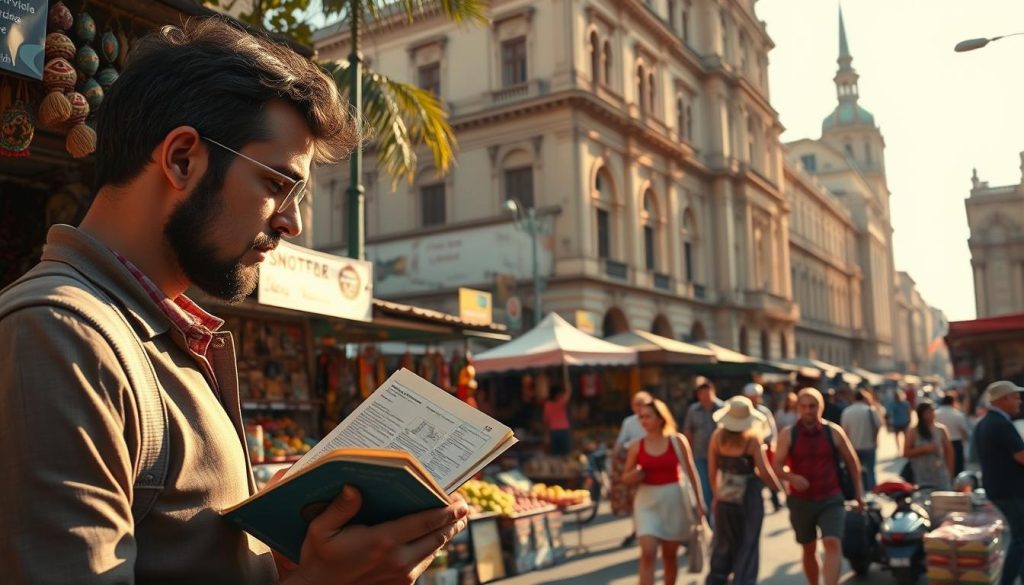
Food is a significant part of your daily budget. Local meals at small eateries cost around $5-$10, while dining at mid-range restaurants may range from $15-$30 per person. Street food is a great option for saving money without compromising on taste.
Transportation costs depend on your mode of travel. Local buses and shared taxis are affordable, usually costing $1-$3 per ride. Private taxis or car rentals will increase your expenses. Plan your routes in advance to avoid unnecessary costs.
“Smart budgeting allows you to enjoy your trip without financial stress.”
Here’s a quick overview of typical daily expenses:
| Expense | Budget Traveler | Mid-Range Traveler | Luxury Traveler |
|---|---|---|---|
| Meals | $10-$15 | $20-$40 | $50+ |
| Transport | $5-$10 | $15-$30 | $50+ |
| Activities | $5-$10 | $15-$30 | $50+ |
To keep costs manageable, consider these strategies:
- Opt for local eateries and street food to save on meals.
- Use public transport or walk for short distances.
- Research free or low-cost activities to enjoy your day without overspending.
Seasonal variations can also impact your budget. High tourist seasons often mean higher costs for accommodations and activities. Planning ahead and booking early can help you secure better rates. For example, visiting during the off-season can save you up to 30% on lodging.
Finally, track your spending to stay on budget. Use a travel app or notebook to record expenses. This helps you identify areas where you can cut costs and ensures you don’t overspend. By understanding costs and managing your budget, you can enjoy a stress-free and memorable trip.
Transportation and Cash Payment Methods
Getting around in a cash-driven economy requires careful planning and flexibility. Most transportation options rely on cash payments, so having enough local currency is essential. Whether you’re taking a taxi or traveling by sea, being prepared ensures a smooth journey.
Taxis are a common way to get around in urban areas. They are widely available but often require cash payments. Negotiate the fare before starting your trip to avoid surprises. Shared rides are another option, offering a more affordable way to travel.
Traveling between islands and coastal areas often involves boat rides. These journeys can be scenic but may require cash for tickets or fees. Plan ahead and confirm payment methods to avoid delays. Sea transport is a popular choice for exploring remote areas.
Here are some tips to handle cash payments effectively:
- Carry small denominations for easier transactions.
- Keep your cash secure in a money belt or hidden pouch.
- Avoid displaying large amounts of money in public.
“Planning your transportation and cash needs in advance ensures a stress-free travel experience.”
For safe and reliable travel, use licensed taxis and reputable transport services. Avoid unmarked vehicles or unofficial operators. If you’re traveling by sea, choose trusted boat operators and check safety equipment before boarding.
Navigating transportation in a cash-based economy can be challenging, but with the right preparation, you’ll be ready to explore with confidence. Whether you’re hopping in a taxi or sailing across the sea, these tips will help you stay on track.
Technology and Connectivity: Navigating Digital Challenges
Staying connected while traveling can be a challenge, especially in regions with limited digital infrastructure. In this country, slow internet speeds and connectivity issues are common, which can impact your ability to access essential services like online banking or communication platforms.
One of the main challenges is the inconsistency of internet access. Urban areas may have better connectivity, but rural regions often struggle with slow speeds or no service at all. This can make it difficult to stay in touch with family or manage your finances online.
To overcome these issues, consider purchasing a local SIM card upon arrival. Major providers offer affordable data plans that can help you stay connected. Additionally, WiFi hotspots are available in hotels, cafes, and some public spaces, though speeds may vary.
“Preparation is key to maintaining digital connectivity in areas with limited infrastructure.”
Here are some practical tips to stay connected:
- Use a local SIM card for reliable mobile data.
- Seek out WiFi hotspots in urban areas.
- Download offline maps and essential apps before your trip.
Despite these challenges, essential online services remain accessible, albeit slower than expected. By planning ahead and using alternative connectivity options, you can navigate the digital landscape with ease.
| Connectivity Option | Pros | Cons |
|---|---|---|
| Local SIM Card | Affordable, reliable data | Requires unlocked phone |
| WiFi Hotspots | Free or low-cost access | Limited availability, slow speeds |
| Offline Apps | No internet needed | Requires pre-downloading |
By combining these strategies, you can ensure a smoother digital experience during your trip. Whether you’re managing your finances or staying in touch with loved ones, these tips will help you stay connected.
Cultural Influences on Payment Practices
Understanding the cultural nuances of payment practices can greatly enhance your travel experience. In this country, local traditions and customs play a significant role in shaping financial transactions. From bargaining in markets to tipping in restaurants, these practices reflect deeper cultural values.
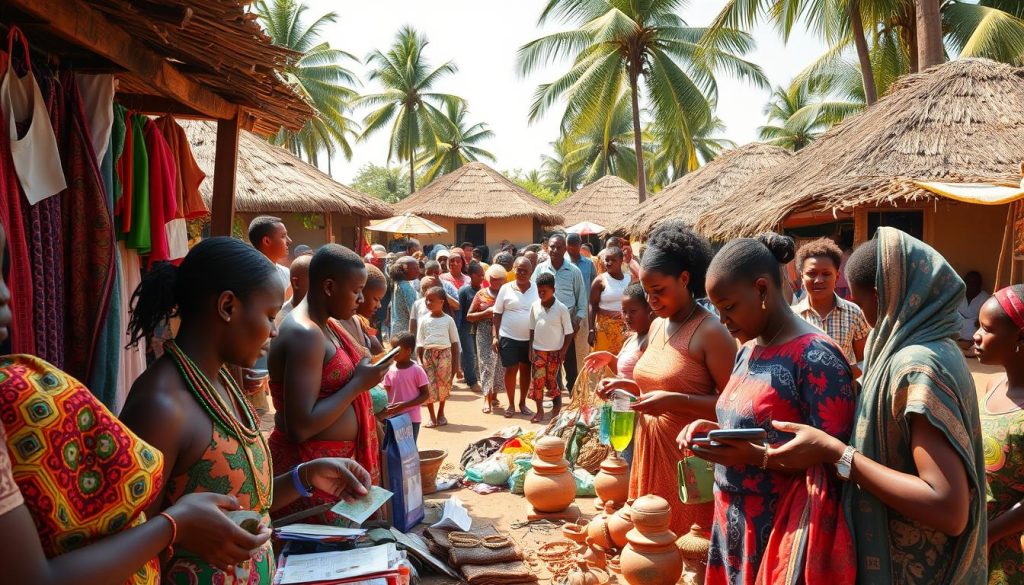
Financial Etiquette and Local Traditions
Bargaining is a common practice in local markets, especially in the city Malabo. It’s not just about getting a better price; it’s a way to engage with sellers and show respect for their craft. Always negotiate politely and with a smile, as aggressive haggling can be seen as disrespectful.
In restaurants, tipping is appreciated but not always expected. A small amount, usually around 10%, is considered generous. This reflects the blend of colonial heritage and indigenous culture in modern-day practices.
Here are some key cultural practices to keep in mind:
- Always carry small denominations for easier transactions in markets.
- Respect local customs by greeting sellers before starting negotiations.
- Be mindful of personal space when handling money in public.
“Respecting local traditions in financial transactions fosters positive interactions and enriches your travel experience.”
In guinea, payment behaviors vary between urban and rural areas. In the city Malabo, credit cards are occasionally accepted in upscale establishments, but cash remains king. In rural regions, cash is the only viable option, so plan accordingly.
By understanding and respecting these cultural practices, you can navigate financial transactions with ease. Whether you’re exploring bustling markets or dining in local restaurants, these insights will help you connect with the local culture on a deeper level.
Insider Tips for Money-Saving and Payment Efficiency
Maximizing your travel budget starts with smart planning and insider knowledge. By following a few practical strategies, you can save money and make your payments more efficient. Whether you’re exploring bustling cities or remote areas, these tips will help you stay on track.
Securing the Best Deals: Booking accommodations and restaurants in advance can save you a significant amount. Look for discounts on travel websites or consider staying in budget-friendly options like guesthouses. Many destinations offer mid-week discounts, so plan your stay accordingly.
Here are some insider tips to save money:
- Use local apps or websites to find the top deals on dining and activities.
- Travel during the off-season to avoid inflated prices.
- Opt for public transport or shared rides to cut down on costs.
“Planning ahead and using local resources can significantly reduce your travel expenses.”
Enhancing Payment Efficiency: Avoid unnecessary fees by using cash for small transactions and cards for larger ones. Notify your bank of your travel plans to prevent card blocks. In some destinations, mobile money services are widely accepted, offering a convenient alternative to traditional banking.
Here’s how to make your payments more efficient:
- Carry small denominations for easier transactions.
- Use prepaid travel cards to avoid high exchange rates.
- Always double-check prices and receipts to avoid overpaying.
By combining these strategies, you can enjoy a cost-effective and stress-free trip. Whether you’re exploring a new destination or revisiting a favorite spot, these tips will help you make the most of your travel budget.
Equatorial Guinea: Ultimate Travelers Guide to Currencies & Payments
Exploring the financial landscape of a new destination can be both exciting and challenging. This guide has covered essential aspects to help you navigate the unique payment systems in this area. From understanding the Central African CFA franc to managing cash transactions, being prepared ensures a smoother experience.
One of the most significant factors influencing financial dynamics is location. Bioko Island, home to the capital Malabo, plays a central role in shaping payment practices. Here, cash remains the primary method of transaction, even as digital options slowly emerge. Understanding this can help you plan your finances better.
In other areas, especially rural regions, cash is even more dominant. ATMs are scarce, and credit card acceptance is minimal. This makes it crucial to carry enough local currency when venturing outside urban centers. Always exchange money at trusted banks or authorized bureaus to avoid counterfeit bills.
“Knowing the local payment systems not only eases your travel but also enriches your experience by connecting you with the culture.”
To recap, here are the key takeaways:
- Cash is king, especially in rural areas and on Bioko Island.
- ATMs and credit card usage are limited, so plan accordingly.
- Exchange money at trusted locations to ensure authenticity.
By referring back to detailed sections on currency exchange and budgeting, you can tailor your financial strategy to suit your travel style. Whether you’re exploring bustling cities or remote villages, being informed leads to a safer and more enjoyable journey.
Remember, every place has its unique financial dynamics. Understanding these nuances allows you to navigate them with confidence. So, take the time to prepare, and you’ll be ready to make the most of your adventure in this fascinating destination.
Additional Resources and Practical Advice for Travelers
Preparing for your trip involves more than just packing; it’s about being informed and ready for any situation. Having the right resources at your fingertips can make your journey smoother and more enjoyable. Here’s a guide to essential tools and advice to help you plan a hassle-free adventure.
Travel Assistance and Visa Services: For visa applications and travel permits, check official government websites or trusted visa service providers. These platforms offer step-by-step guidance and ensure your documents are in order. Always verify processing times and required documents to avoid delays.
Travel Insurance and Emergency Contacts: Travel insurance is a must for any trip. It covers unexpected medical expenses, trip cancellations, and lost luggage. Keep a list of emergency contacts, including local consular services, in case you need assistance abroad. Your country’s embassy or consulate can provide support in emergencies.

Health Precautions: Before traveling, check if vaccinations are required. For example, a yellow fever vaccination is often mandatory for entry into certain regions. Visit a travel clinic or consult your healthcare provider for advice on other vaccinations and health precautions. Carry a copy of your vaccination records with you.
“Being prepared with the right resources ensures a safe and stress-free travel experience.”
External Resources and Guides: For in-depth information, explore travel guides and websites dedicated to your destination. These resources provide insights into local customs, attractions, and practical tips. Websites like the CDC and WHO offer updated health advisories and safety recommendations.
Here’s a quick reference table for essential resources:
| Resource | Details |
|---|---|
| Visa Services | Official government websites, trusted visa providers |
| Travel Insurance | Covers medical expenses, trip cancellations, lost luggage |
| Emergency Contacts | Local consular services, embassy contact details |
| Health Precautions | Yellow fever vaccination, travel clinic consultations |
| Travel Guides | CDC, WHO, destination-specific websites |
By utilizing these resources, you can ensure a well-prepared and informed trip. Whether you’re exploring a national park or navigating a bustling city, these tools will help you stay safe and enjoy your adventure to the fullest.
Conclusion
Exploring a new region’s financial systems can be both fascinating and practical. This guide has provided essential insights into navigating currencies and managing payments effectively. From understanding local banking to securing visas and budgeting wisely, thorough preparation is key to a smooth journey.
Whether you’re venturing into lush parks or bustling cities on the mainland, being informed ensures you’re ready for any situation. Cash remains the primary payment method, especially in rural areas, so carrying enough local currency is crucial. Always exchange money at trusted locations to avoid issues.
Use this guide as your go-to reference throughout your trip. It’s designed to help you make informed decisions, whether you’re exploring remote parks or navigating urban centers on the mainland. Thank you for taking the time to dive into this comprehensive resource—your adventure starts with the right preparation!
The above is subject to change.
Check back often to TRAVEL.COM for the latest travel tips and deals.

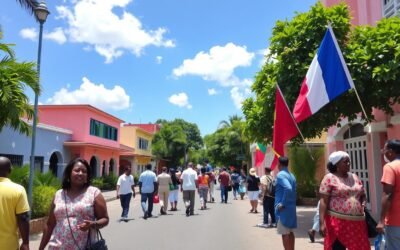

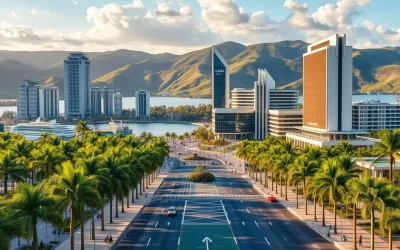
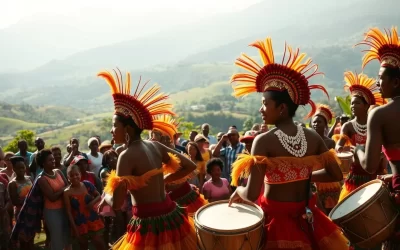

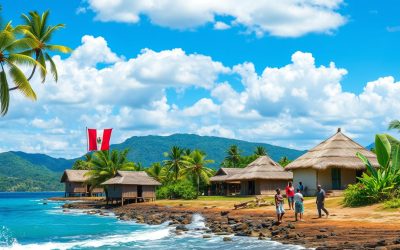
0 Comments